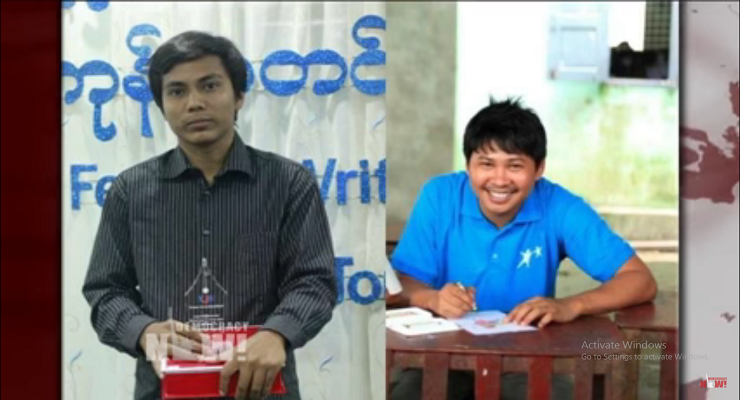
Two Reuters journalists in Myanmar have been convicted of violating the country’s secrecy laws and sentenced to seven years in prison.
Wa Lone and Kyaw Soe Oo were arrested last December after meeting with two police officers at a restaurant in Yangon and given a stack of documents. They were charged with violating the Official Secrets Act, which was enacted in 1923, when Myanmar was called Burma and was under British colonial rule. Both men have denied asking for the documents.
The pair were covering the brutal military campaign in Rakhine state that has driven nearly 700,000 Rohingya Muslims across the border into Bangladesh since last August. They were focused on the massacre of 10 Rohingya by police and soldiers in the village of Inn Din.
The verdict was scheduled to be announced last week, but was postponed due to the presiding judge’s illness.
The arrests of Wa Lone and Kyaw Soe Oo have sparked international outrage among free speech and human rights activists, who saw the case as Myanmar’s first real test of freedom of expression after embracing democracy in 2016 after decades under repressive military rule.
Reuters editor-in-chief Stephen J. Adler denounced the verdict in a statement, calling it “a sad day for Myanmar,” the two reporters “and the press everywhere.” Adler said the judge’s ruling was “a major step backward in Myanmar’s transition to democracy, cannot be squared with the rule of law or freedom of speech, and must be corrected by the Myanmar government as a matter of urgency.”
“Today’s appalling verdict has condemned two innocent men to years behind bars,” said Tirana Hassan, Amnesty International’s Director of Crisis Response. “This politically-motivated decision has significant ramifications for press freedom in Myanmar. It sends a stark warning to other journalists in the country of the severe consequences that await should they look too closely at military abuses. This amounts to censorship through fear.”
Knut Ostby, the United Nations Resident and Humanitarian Coordinator in Myanmar, said the world body was “disappointed” in the court’s decision.
The military and the civilian government have prohibited most journalists and international observers from traveling independently to the area. They have denied the accusations made by the United Nations and United States of ethnic cleansing, but have sentenced seven soldiers in connection with the murders in Inn Din.
A special United Nations investigative panel issued a report last week accused Myanmar’s military of carrying out numerous atrocities during last year’s crackdown against the Rohingya Muslims “with genocidal intent” and is calling for the prosecution of its top generals, including the army’s commander-in-chief, General Min Aung Hlaing, of genocide, crimes against humanity and war crimes.
Facebook has banned the general and other top military officials from its site in what the company says is an effort to prevent the spread of hate and misinformation in connection with the Rohingya crisis.
Leave a Reply